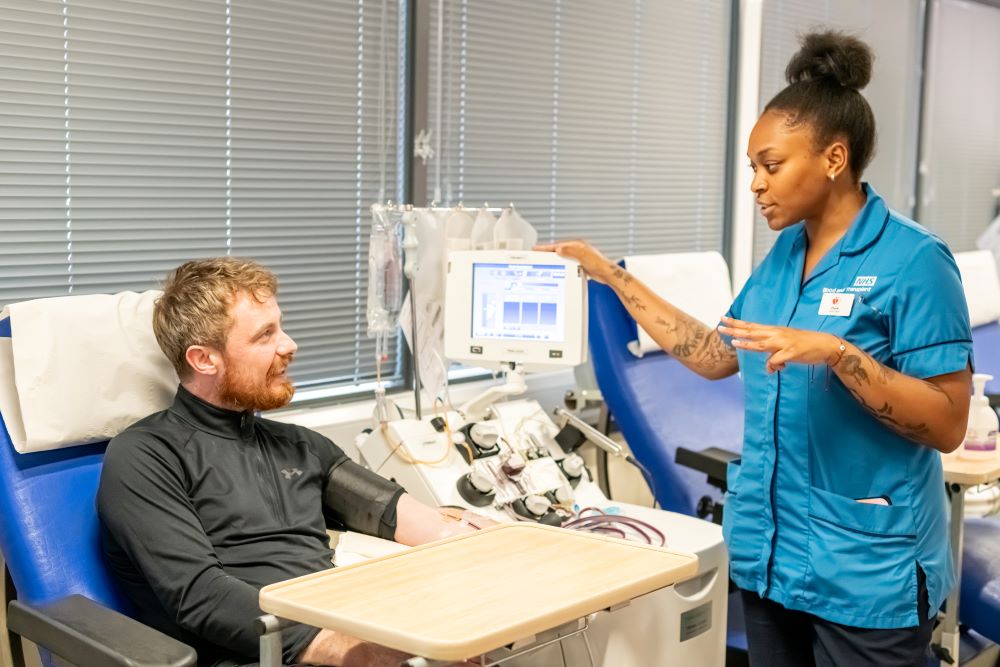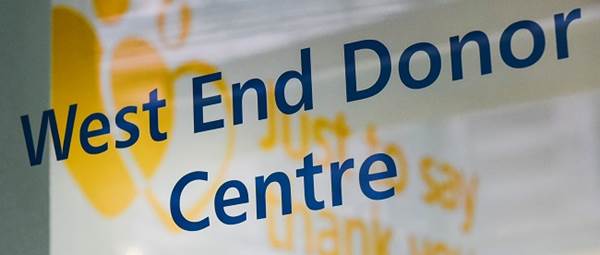Donating platelets
Whether you are new to donating platelets or have an appointment booked, it’s important to know what happens on the day and how you can stay safe before and after donation.
Want to know more about donating platelets? Here’s what to expect
Click on a category for details:
Before your appointment
In the 48 hours before giving platelets you should:
- drink plenty of liquids to stay hydrated
- eat regular and nutritious meals
- avoid fatty foods, such as fried breakfasts and takeaways, as they can affect the quality of your donation
- avoid using ibuprofen, aspirin and other non-steroidal anti-inflammatory drugs. Paracetamol and codeine-based medicines are fine
If you cannot donate, please reschedule your appointment in your online account or by calling 0300 123 23 23.
On the day of your appointment
Make sure to eat and drink before you donate, avoiding fatty foods.
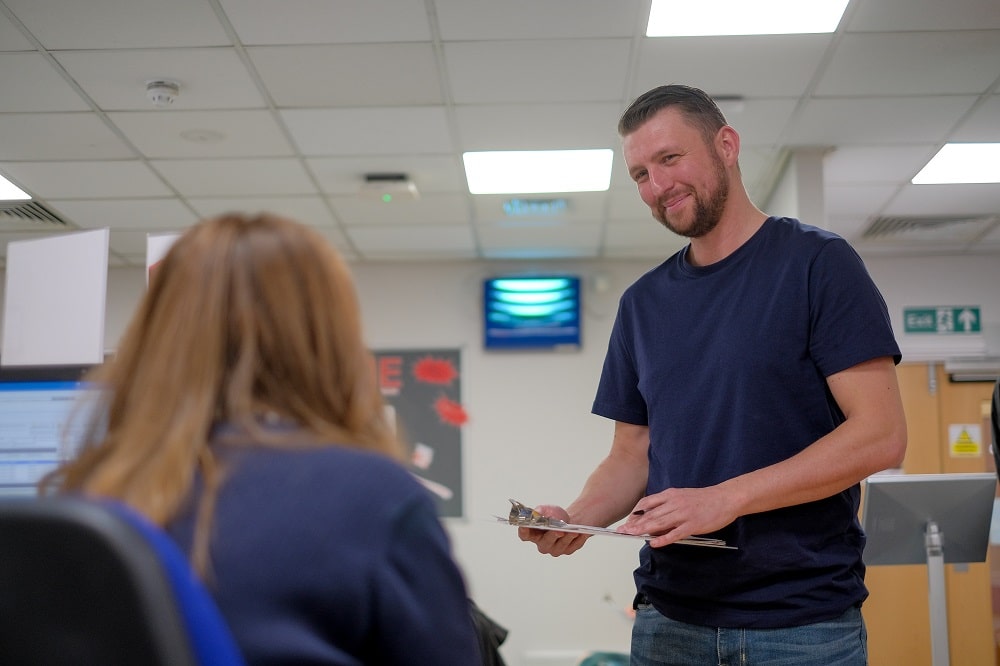
Checking you are OK to donate on the day
We will invite you into a private room for a confidential health screening.
The health screening is to check you are able to donate and that your platelets are safe to give to people.
It’s important you answer all questions honestly. All information you share is confidential.
During the health screening we will:
- confirm your identity
- ask you some questions based on your answers to the health questionnaire
- check your iron levels are high enough
- check your pulse and veins to see if you can donate
Then you need to read and sign a consent form. This is a legal document that confirms you understand what is involved in platelet donation.
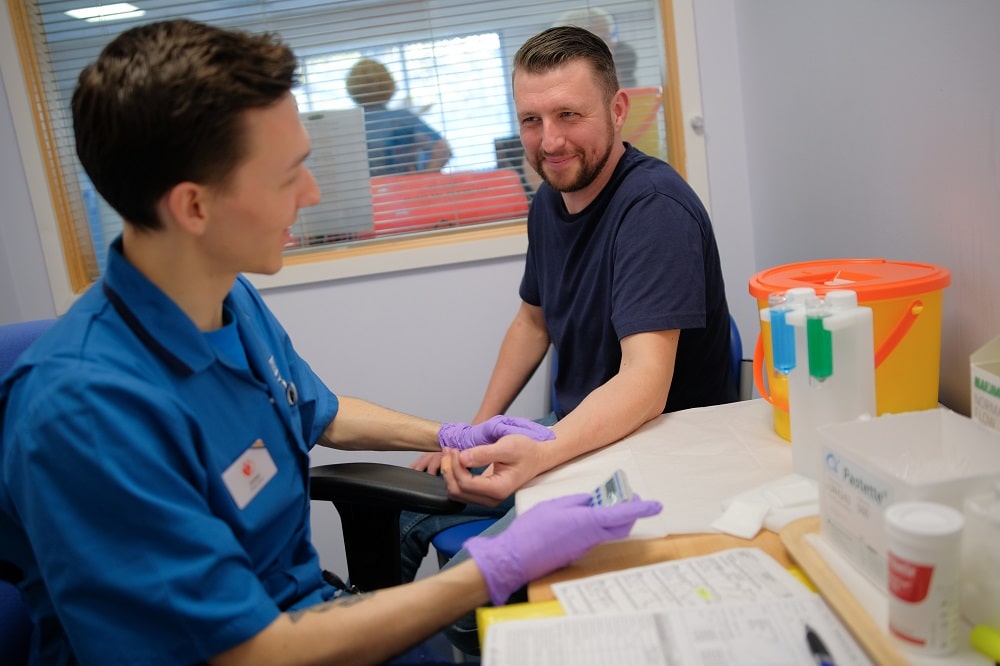
Donating platelets
Donating a unit of platelets (1 bag) can take up to 90 minutes.
We take you to a donation chair and lower it so that you are lying back slightly.
We put a cuff on your arm to maintain a small amount of pressure throughout your donation.
We clean your skin before inserting a needle into your arm. The needle is attached to a tube which goes into a platelet machine.
Your blood travels through the needle and tube and into the machine. This machine spins your blood around to remove your platelets.
The extracted platelets are stored in a bag and the rest of your blood is returned to your body.
While you donate you can watch TV, use your phone, read a book or just relax. Snacks and drinks are available throughout your donation.
We keep a close eye on you while you donate. If you feel uncomfortable or there are any problems, we stop the donation.
As red blood cells are returned to you straight away during the donation, it allows you to donate platelets more often than blood.
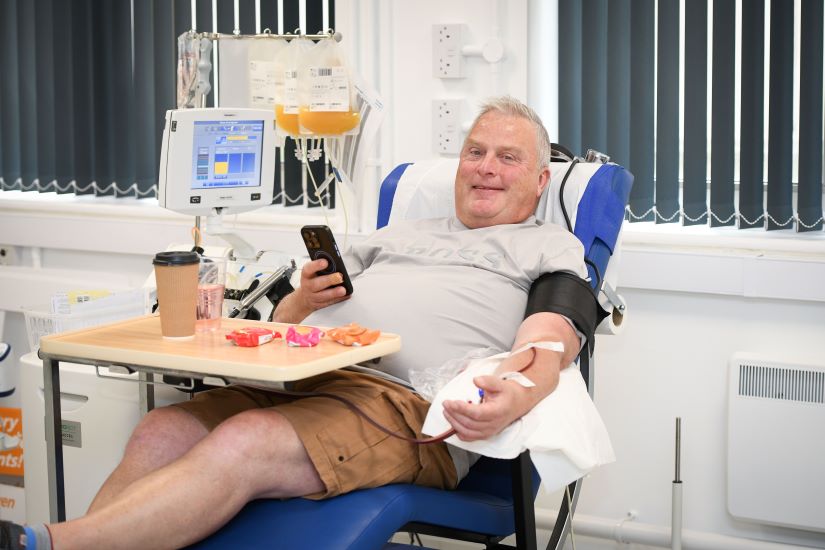
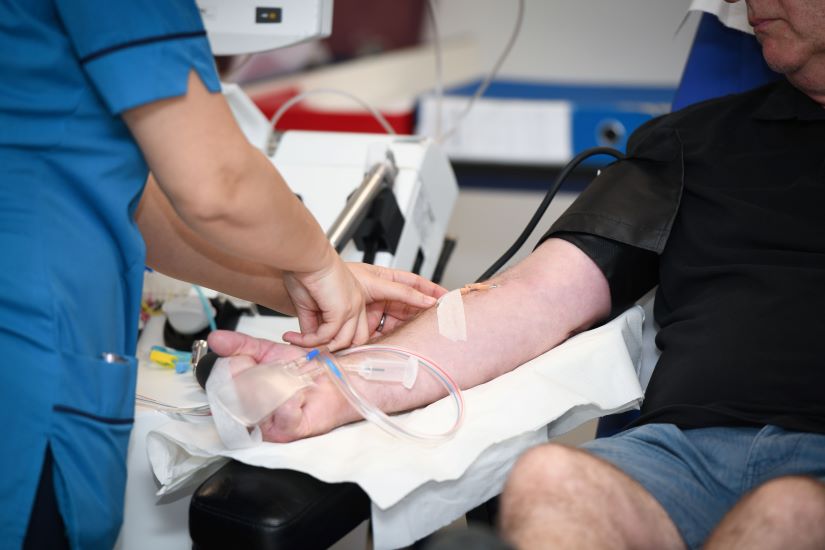
Book your next appointment
After a short rest, you are ready to go. It doesn’t take long to recover after giving platelets as your body replaces platelets quickly, usually within 48 hours.
Don’t forget to book your next appointment online, at the welcome desk before you leave or by calling 0300 123 23 23.
The shelf life of platelets is just 7 days, so to collect the right amount we may ask you to give regularly or just when needed. We will discuss this with you after your first donation.
It is safe to donate platelets as often as every two weeks, however for many people every 4 to 8 weeks is convenient.
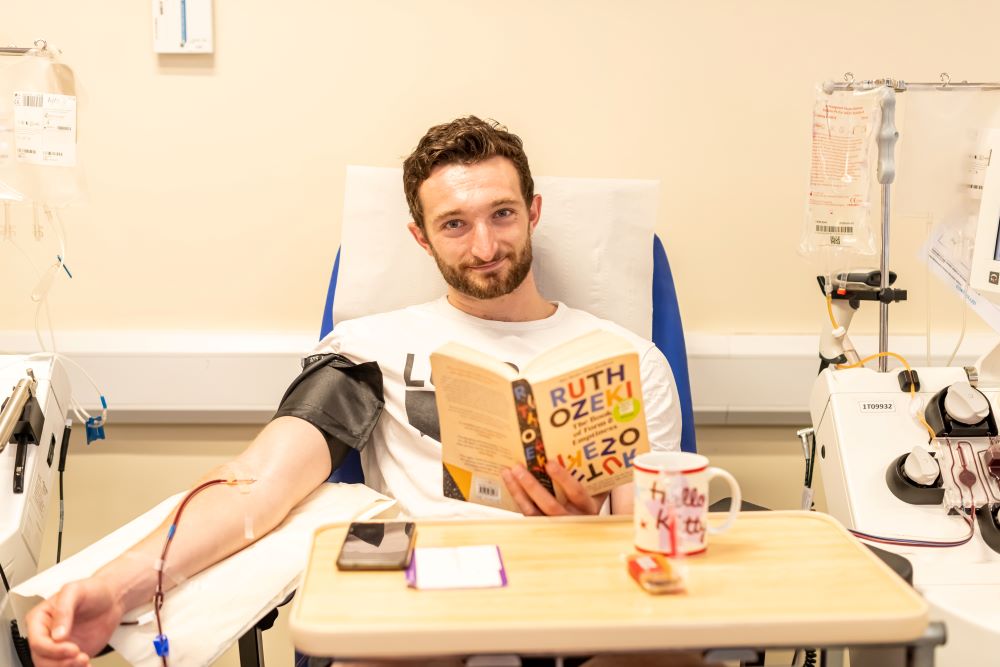
Staying well after your donation
Tips to stay well after your donation:
- eat and drink
- keep the pressure dressing on your arm for about 30 minutes, and the plaster on for 6 hours
- avoid using your donation arm to carry anything very heavy for the rest of the day
- avoid having a hot bath after you have given platelets
- avoid heavy exercise on the day you donate
If you become unwell (other than a cold or cold sore) within 2 weeks of donating, or if you think there is a reason your platelets should not be given to a patient, please call us on 0300 123 23 23.
